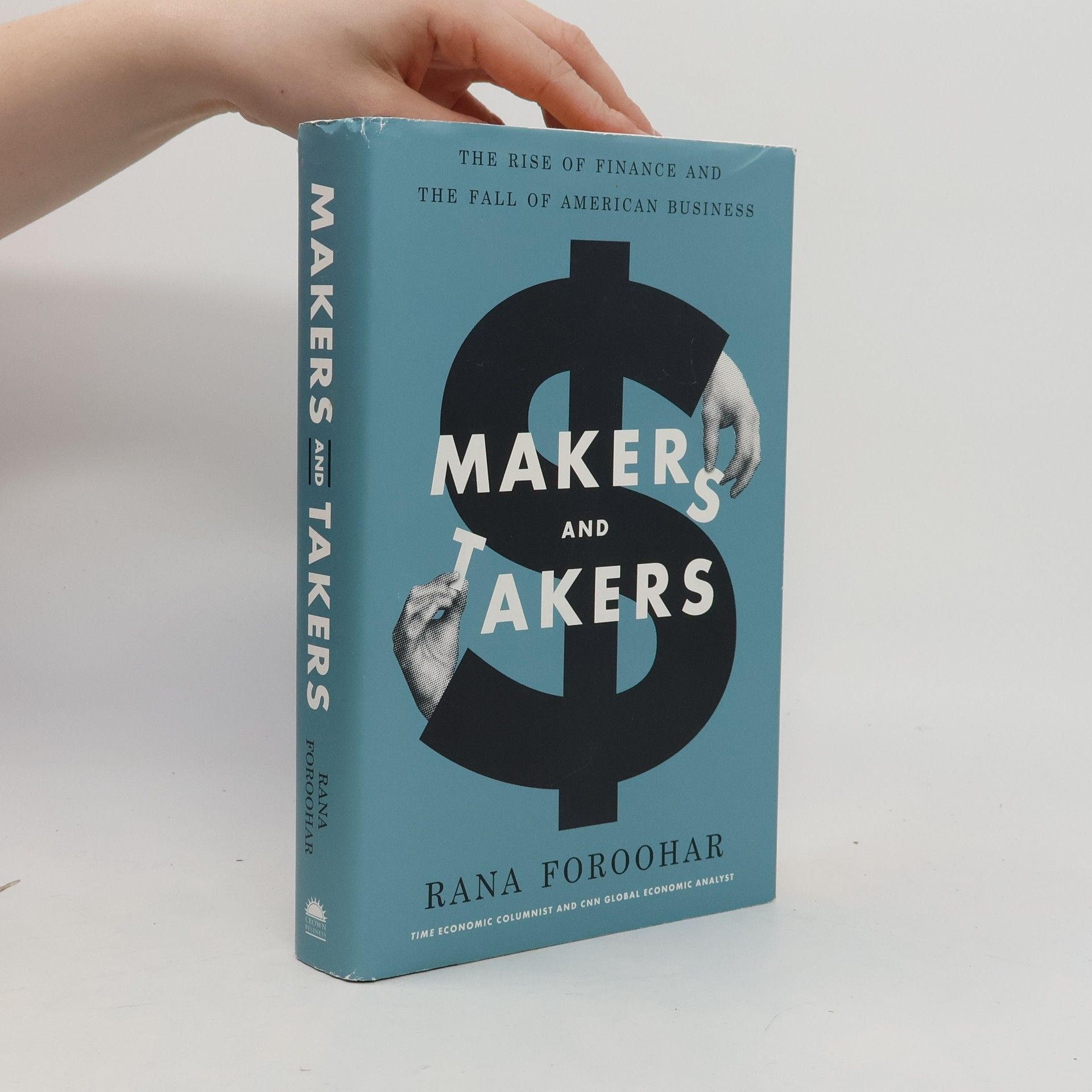At the dawn of the twenty-first century, Thomas Friedman, in The World Is Flat, declared globalization the new economic order. But the reign of globalization as we've known it is over, argues Financial Times columnist and CNN analyst Rana Foroohar, and the rise of local, regional, and homegrown business is now at hand.[Bokinfo].
Rana Foroohar Book order (chronological)
This author's work focuses on the intricate interplay of global economics, politics, and technology. Her writing offers sharp analysis on how economic forces shape modern society and international relations. Through her prose, she uncovers the hidden mechanisms influencing our lives, emphasizing critical thinking and understanding of the contemporary world.




"Nie czyń zła" to pierwsza zasada korporacyjna Google'a, przyjęta w czasach, gdy firma miała utopijną wizję przyszłości. Obecnie, zarówno Google, jak i inne firmy Big Tech, odchodzą od tych ideałów, a utopia staje się dystopią, gdzie dominują cyfrowa inwigilacja, utrata prywatności, dezinformacja oraz drapieżne algorytmy. Jak doszło do tego, że idealistyczne przedsięwzięcia przekształciły się w chciwe monopole, które wpływają na wyniki wyborów i gromadzą nasze dane, unikając regulacji i płacenia podatków? Rana Foroohar, dziennikarka Financial Times, w swojej książce przedstawia kluczową historię o tym, jak Big Tech stracił swoją duszę. Dzięki niemal trzydziestoletniemu doświadczeniu w relacjonowaniu biznesu i technologii ujawnia, jak giganci tacy jak Google, Facebook, Apple i Amazon przekształcają nasze dane i uwagę w zyski, nie oddając nam nic z tych kolosalnych dochodów. Foroohar proponuje również sposoby na sprzeciwienie się tym praktykom, wskazując na potrzebę innowacji, które jednocześnie chronią nas przed negatywnymi skutkami cyfrowych technologii.
Don't Be Evil
- 368 pages
- 13 hours of reading
Google and Facebook receive 90% of the world's news advertising spend. Amazon takes half of all e-commerce in the US. Google and Apple operating systems run on all but 1% of cell phones globally. And 80% of corporate wealth is now held by 10% of companies - the digital titans. How did these once-idealistic and innovative companies come to manipulate elections, violate our privacy and pose a threat to the fabric of our democracy? Through her skilled reporting and unparalleled access, Rana Foroohar reveals the true extent to which the 'FAANG's (Facebook, Apple, Amazon, Netflix and Google) crush or absorb competitors, hijack our personal data and mental space and offshore their exorbitant profits. What's more, she shows how these threats to our democracies, livelihoods and minds are all intertwined. Yet Foroohar also lays out a plan for how we can resist, creating a framework that fosters innovation while protecting us from the dark side of digital technology.
Makers and Takers
- 388 pages
- 14 hours of reading
"Foroohar [posits that] the shortsighted and misguided financial practices that nearly toppled the global economy in 2008 have come to infiltrate all corners of American business--putting us on a dangerous collision course to another economic meltdown that will make 2008 look like a mere blip in the business cycle"--